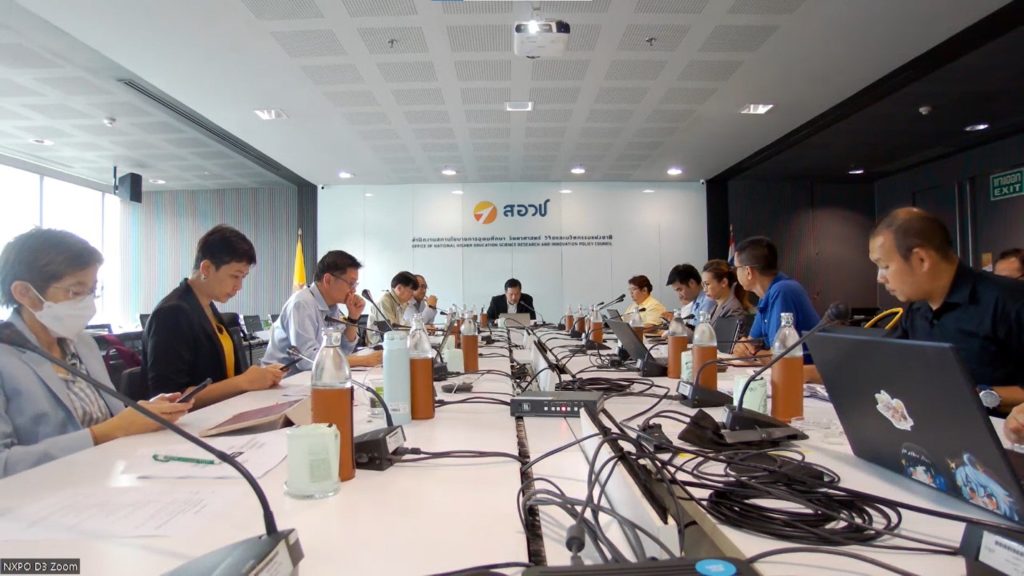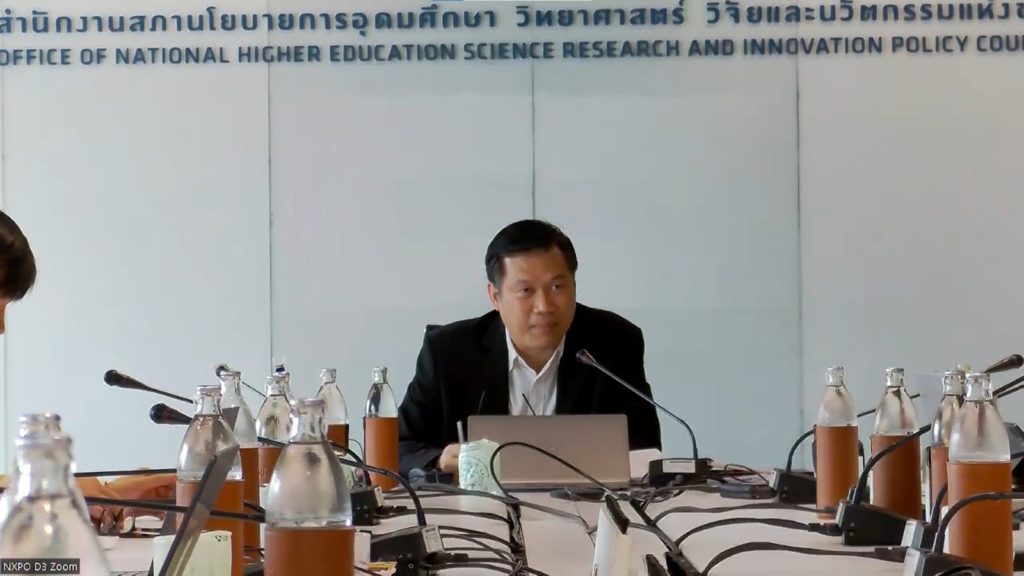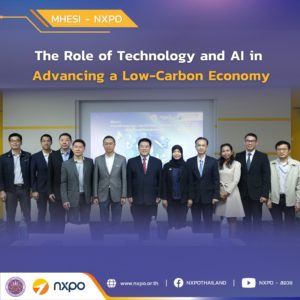On 5 February 2024NXPO, in collaboration with the the Electric Vehicle Conversion Association of Thailand (ECAT), organized a workshop focusing on policies for promoting the electric vehicle (EV) conversion industry in Thailand.

The workshop brought together representatives from 20 organizations, including six government agencies, namely NXPO, the Department of Alternative Energy Development and Efficiency (DEDE), the National Science and Technology Development Agency (NSTDA), the Electricity Generating Authority of Thailand (EGAT), the Provincial Electricity Authority (PEA), and the Metropolitan Electricity Authority (MEA). Five universities taking part in the workshop were King Mongkut’s University of Technology North Bangkok, King Mongkut’s University of Technology Thonburi, Chiang Mai University, Burapha University, and the Thai-Nichi Institute of Technology. The industry sector was represented by PTT Public Company Limited, SNC Former Public Company Limited, Cho Thavee Public Company Limited, Panus Assembly Company Limited, ECU Shop 1 Company Limited, and Gewinn Consulting Company Limited. The three associations joining the event were the Thailand Energy Storage Technology Association (TESTA), the Thai Electric Vehicle Association (EVAT), and ECAT.

Chaired by Dr. Thanakarn Wongdeethai, NXPO Strategist, Secretary of PMUC’s Future Mobility Program Committee and President of ECAT, the meeting addressed government policies aimed at mitigating PM2.5 pollution in Chiang Mai caused by forest fires, and logistics and transport sector. The meeting acknowledged Prime Minister Mr. Srettha Thavisin’s directive given on 11 January 2024, encouraging collaborative efforts among agencies to resolve the problem, particularly emphasizing the potential of electrification of public transportation in Chiang Mai to reduce vehicular emissions from passenger cars. The meeting further discussed the feasibility, direction and preparations for immediate implementation of this initiative.

The workshop concluded with a draft joint work plan to be spearheaded by ECAT, an organization established in 2023 by a group of engineers, technologists and scholars with the main mission to advance the development and commercialization of EV conversion in Thailand. The work plan aims to achieve the following targets:
- Short-term goal (6 months): Provide recommendations to the government on standards and regulations to promote EV conversion.
- Medium-term goal (1 year): Have at least 1,000 converted electric vehicles in operation and at least 100 Thai-owned EV conversion businesses.
- Long-term goal (3-5 years): Introduce EV conversion technology and solutions developed by Thai institutes and companies to export markets, positioning Thailand as a global center for EV conversion technology and solution.
















